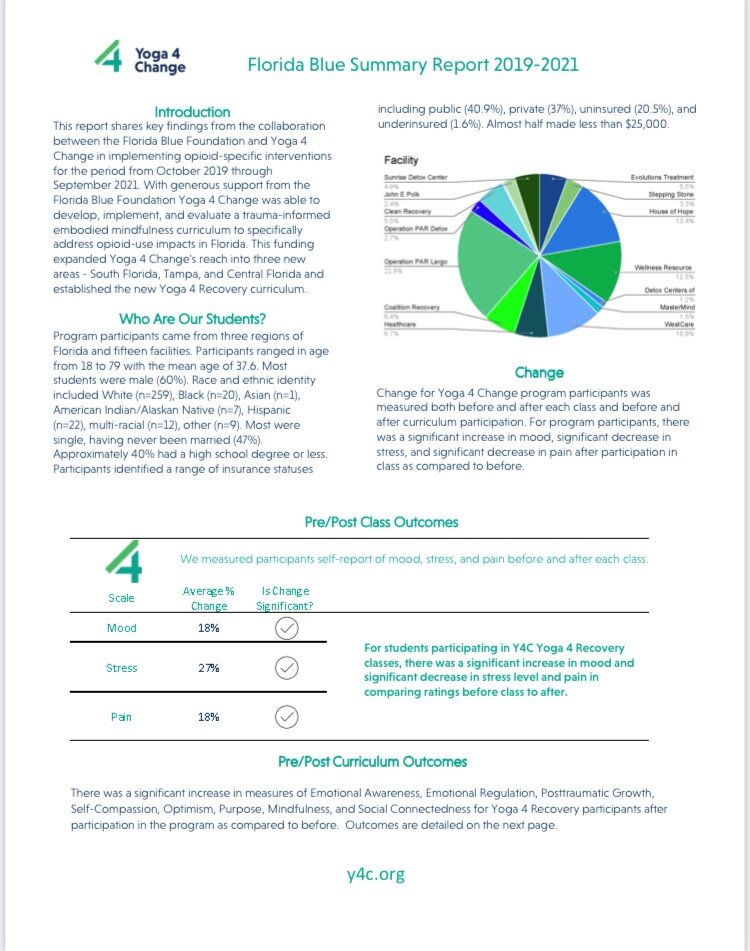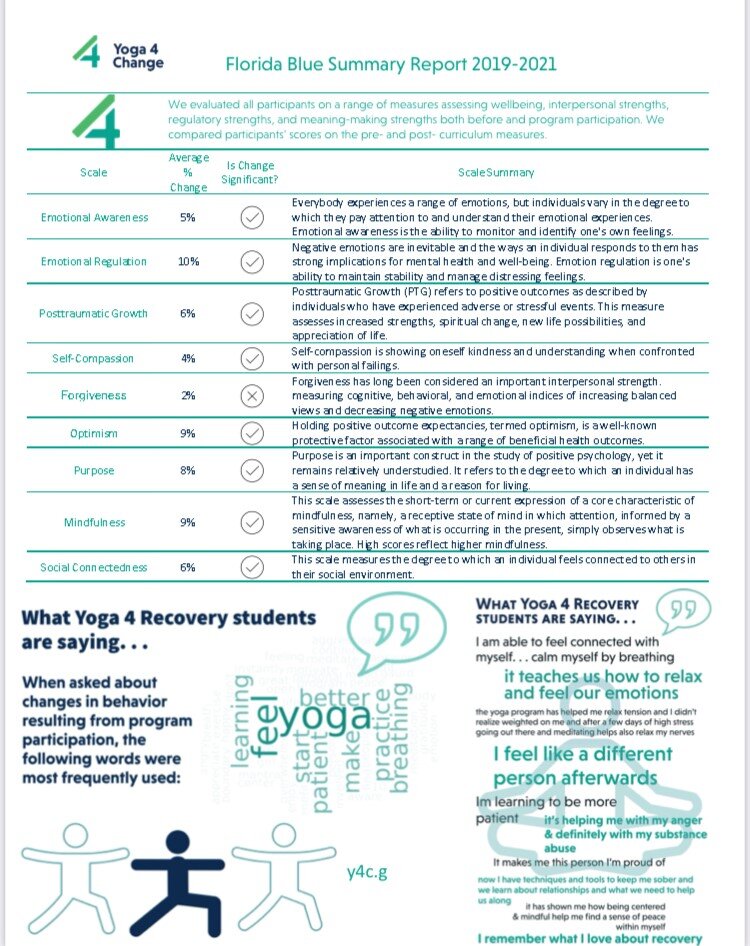By Breanna Tivvis | Director of Development
Over the past three years, with generous funding from the Florida Blue Foundation, Yoga 4 Change has been conducting a study on the impact Yoga 4 Change programming has on the substance use community and the opioid epidemic. The study expanded the organization into three additional regions, which were chosen based on research designating them to be high in opioid-related overdoses and/or opioid-related deaths. These regions include Tampa Bay, South Florida, and Central Florida. Each class was evaluated through quantitative and qualitative data to provide the impact of every class on students involved in the program. The data collected was analyzed through a partnership with Boston University, and the results show that adding Yoga 4 Change’s proprietary curriculum to individual’s treatment plans can provide strength-based tools for physical and mental wellbeing.
Yoga 4 Change was able to develop a research-based, trauma-informed curriculum known as ‘Yoga 4 Recovery’ with goals to support current opioid use treatment, help reduce addictive behavior, support strategies for prevention, and offer former students opportunities for yoga teacher training and employment. Curriculum development was unique in that it incorporated a co-creative process, including a team of clinicians, yoga practitioners, and people in recovery. Yoga 4 Recovery’s methodology, data collection, and curriculum was then taught to approximately 40-50 contracted yoga teachers and offered to individuals treated in recovery centers including rehabilitation clinics, detox clinics, substance abuse programs, and halfway houses . “Being able to prove the impact of the curriculum we created in collaboration with former students, researchers, yoga teachers, and community leaders led to a highly innovative process rooted in both experiential and empirical knowledge, ” stated Yoga 4 Change’s Director of Research, Dr. Danielle Rousseau.
Data was self-reported by participants and measured both before and after individual classes and before and after participation in the curriculum ( six weeks of programming). Average change after one class included an 18% increased change in mood, a 27% decrease in stress, and an 18% decrease in pain with all changes being statistically significant. These changes are also clinically meaningful given that participants report using substances because of their low mood, high stress, and high (many times chronic) pain. In addition, the program was evaluated at the end of the six week curriculum and was found to result in significant increases in measures of emotional awareness, emotional regulation, posttraumatic growth, self-compassion, optimism, purpose, mindfulness, and social connectedness. Attached is the short report on findings.
Project reports on GlobalGiving are posted directly to globalgiving.org by Project Leaders as they are completed, generally every 3-4 months. To protect the integrity of these documents, GlobalGiving does not alter them; therefore you may find some language or formatting issues.
If you donate to this project or have donated to this project, you can receive an email when this project posts a report. You can also subscribe for reports without donating.
Support this important cause by creating a personalized fundraising page.
Start a Fundraiser
